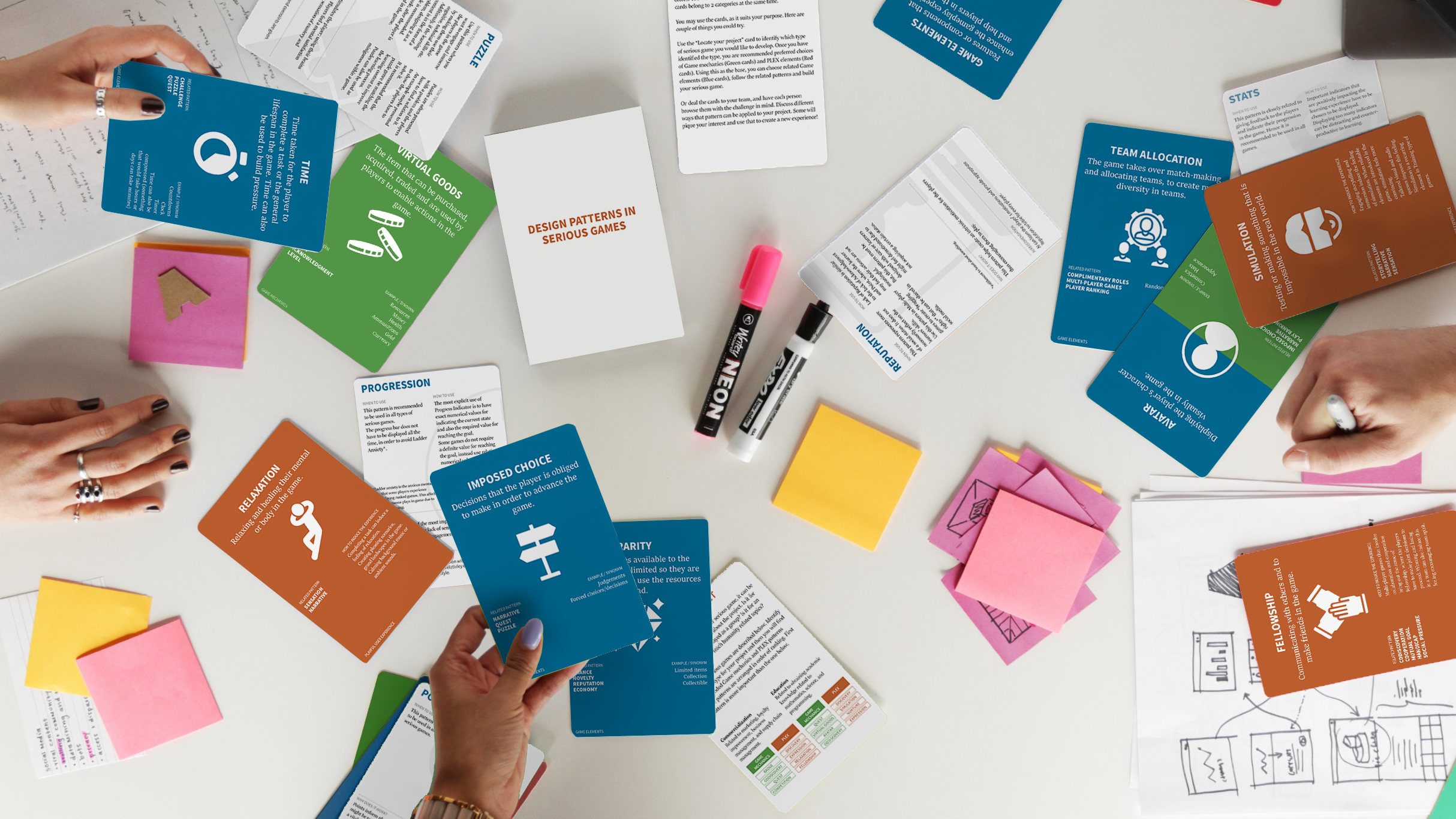Workshop Facilitation Tool to Design Gamified Training Modules at Siemens
UX Research Product Design Strategy
TEAM
Master Thesis - Solo
DURATION
6 months
All the employees must undergo several types of trainings in person and online, as a corporate protocol. Siemens is looking to transitioning traditional trainings to be more engaging by adopting this strategy.
Serious game development teams face challenges in communicating with each other and lack a structured design process.
-
For this project, I collaborated with Siemens UXT, conducting research on game design, psychology, and design tools. I focused on understanding user pain points with user-interviews and developing the content, design and right strategy for the product. The outcome was a workshop tool that enables various game design stakeholders to initiate the game design process.
-
A serious game is a game designed for a primary purpose, such as educating the player on a certain topic, other than pure entertainment.
PROCESS
I researched user goals by conducting user-interviews, studied relevant literature, and conducted usability tests to inform a systematic card-based solution for serious game design.
Clustered insights from user interviews provide insights into painpoints
Interview insights and literature study helped identify 42 categorized game patterns, involving elements, mechanics, and playful user experiences (PLEX).
DESIGN
Game design pattern cards offer user guidance with introductory cards for workshops and discussions.
Recommendations assist in identifying game types, mechanics, and elements for effective development.
The 3 categories are distinctly colored for clarity. Cards feature colored backgrounds with white text on one side and vice versa, emphasizing content importance through typography. Printables follow DIN B6 size.
OUTCOME
Two-thirds of the experts interviewed rated the cards as very effective and useful.
— Head of Research in AI and Serious Games at Siemens Technology
Pattern cards would have helped us immensely to actually design the game because clients weren't able to contribute or participate at all with the way we were explaining games up until now.
— PhD candidate in computer science and natural language processing
I think this would be ideal to use by yourself because you can kind of lay this out in front of you, pull the relevant parts and think about how you could interconnect these, but I think where this would really shine is in the workshops style setting with small teams.
— Professor of Applied computer science and former Software architect
The minimal effect these cards could have is that people will see this as a toolbox. Serious game is a big topic, so to get started, you have the cards. These are the tools you have.
— Research assistant in communication management and serious game development consultant
Visual, tangible, and specific; great help in workshops for preparation and understanding serious game options.
NEXT STEPS
Next steps involve building on positive feedback and addressing constructive criticisms for card improvement. Testing in real game design scenarios with multidisciplinary teams will quantify unexplored aspects, ensuring the next iteration is more beneficial for users through enhanced design and content.






